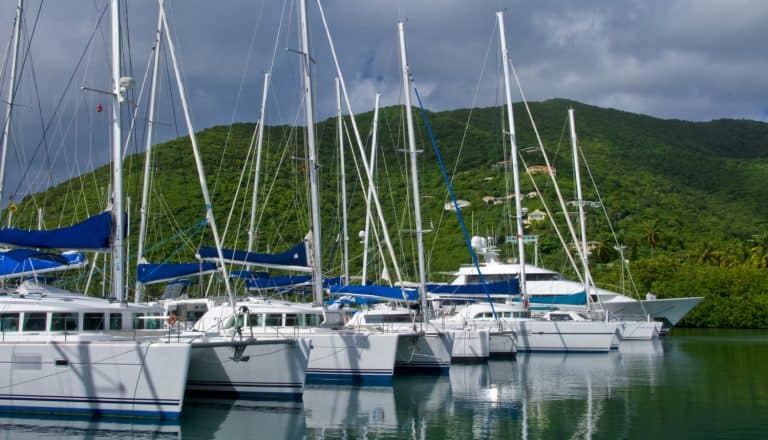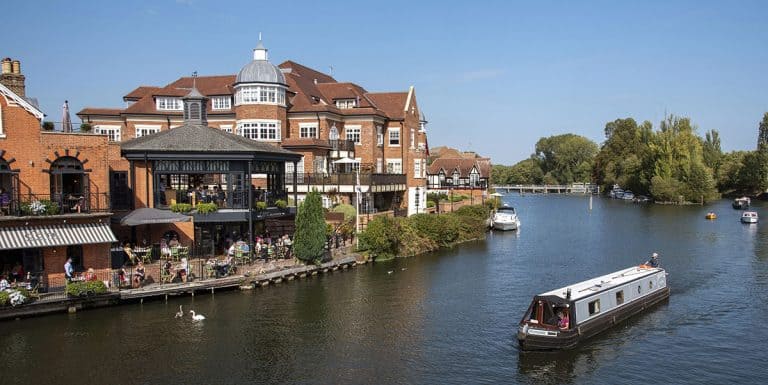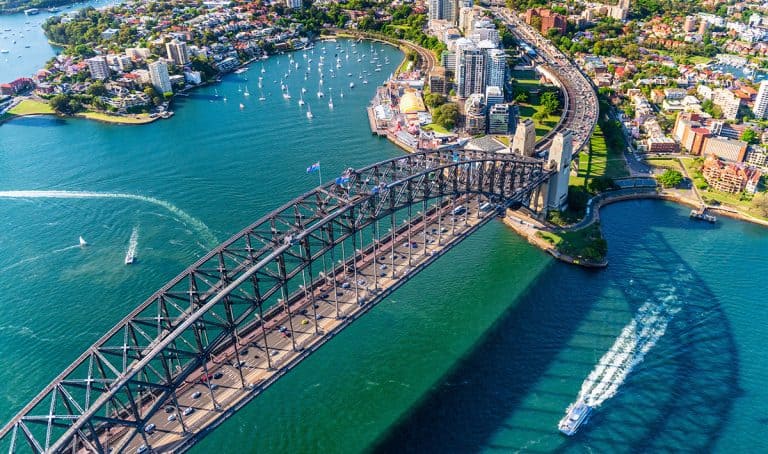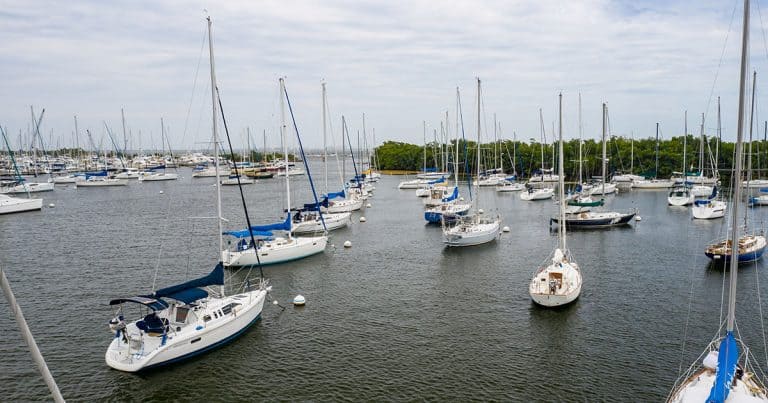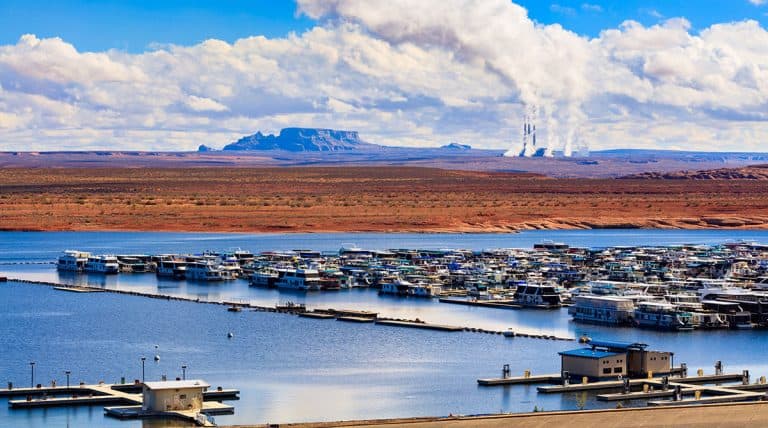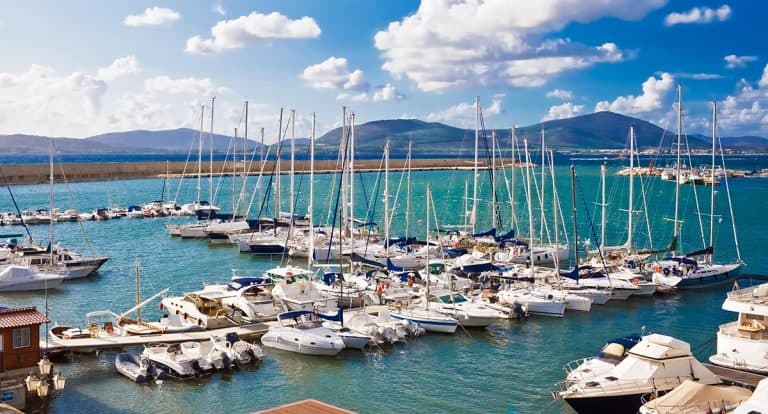It Can be Done: How to Live on a Boat for Free
A boat is a symbol of the ultimate freedom; it can traverse the vast seas and isn’t tied to a geographic location.
While you may have heard of houseboats, you don’t have the freedom of movement you might have with larger boats that are better suited for ocean travel. You also will have to pay for docking fees wherever you end up living in it.
It is possible to live on a boat for free, a practice known as sea-steading. Doing so involves a high up-front cost, however, and will also require a large amount of DIY knowledge and skill for maintenance purposes. It is not easy and not a lifestyle suited for everyone, but it is absolutely a realistic possibility.
To live for free on a boat, you’ll have to lay down some money when first getting your boat ready, and you’ll have to do a fair amount of research and developing new skills as well.
If you’ve ever wanted to just get away from it all, it’s hard to find anything as efficient as a boat. Keep reading to discover how to live for free on a boat.
How to Live on a Boat for Free
Before getting your monthly cost of living to zero (which is our standard for this article), you’ll have a fair amount of purchases to make to get your boat set up for free-living. Here’s what you’ll need to buy, at a minimum, and how much you can expect to spend.
| Item | Reason | Price Range |
| Boat | To sail on (obviously!) | $25,000-$50,000 |
| Watermaker | Desalinates ocean water | $1,500-$3,000 |
| Solar panels & Battery | Portable, sustainable electricity | $1,000-$5,000 (depending on size and wattage output) |
| Fishing gear | Primary food source | $500-$1,000 |
| Navigation System | Figure out where you’re going (can also be used as a fishfinder) | $300-$5,000 |
Loving seafood is a plus, but you’ll probably want to have food other than fish occasionally, so you may want to look at onboard gardening. Realistically, you will have to buy food from time to time, though. And of course, there’s the periodic maintenance and repairs; you can’t avoid those either.
You’ll have to find free places to dock or anchor wherever you will be, and if you’re a U.S. citizen, you’ll have to be a resident of a state that doesn’t charge taxes. If you remain a citizen of the U.S., though, you’ll have to get your income tax way down to avoid paying federal taxes.
If you can get these items sorted out, it’s theoretically possible to get out on a boat and live for free.
Boat Options
If you’re trying to live for free on a boat, you’ll likely want to get a sailboat. One of the most expensive parts of owning a boat is the fuel costs, but with a sailboat, you can avoid that expense. There are also fewer parts that could break on a sailboat than on a boat with a motor, so you’ll probably save on maintenance costs.
… Although replacing old sails it not exactly cheap either, but you can do a lot to maintain and repair them by yourself.
If you’re trying to keep your initial costs down, you’ll probably want to buy a used boat that is big enough for your needs and for taking out on the ocean, but not too big that you can’t handle it by yourself or with the people who might be accompanying you. If you’re looking at a sailboat for free ocean living, you have two choices:
- Mono-hull sailboats
- Multi-hull sailboats
Monohull Sailboat
This is the classic sailboat you’ll think of when you picture a sailboat. It’s relatively inexpensive, but it usually lacks interior space and may not have a ton of amenities like a full bedroom, shower, or kitchen area.
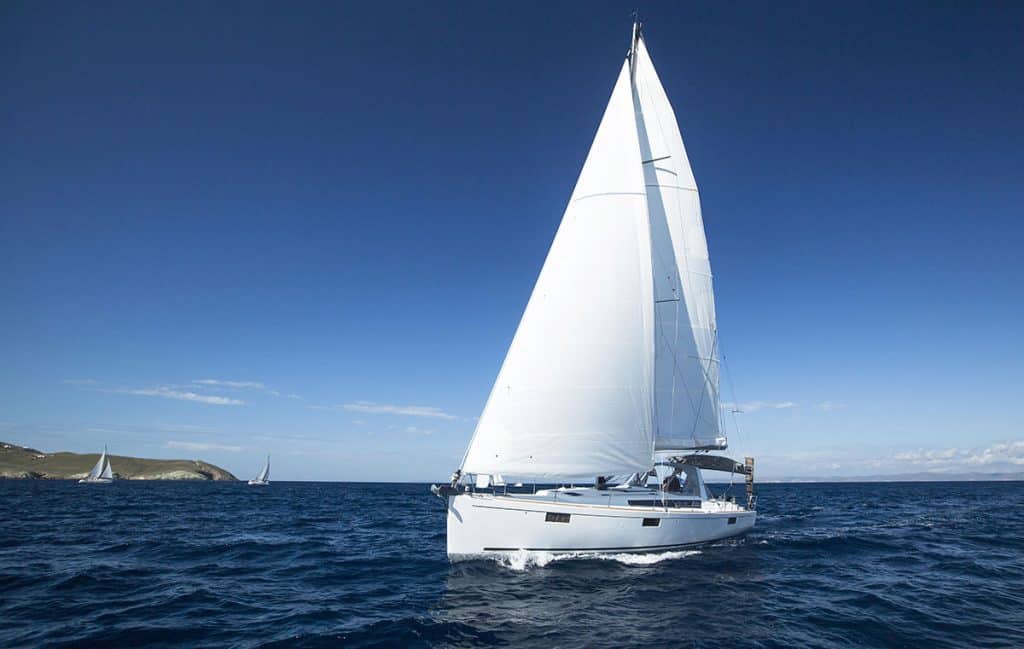
Smaller models may also be less stable on rough seas, so if you plan on taking it out on the ocean, you may want a larger model or a multi-hull sailboat.
Multi-hull Sailboat
Multi-hull sailboats are so named because they have two (catamarans) or three hulls (trimarans) next to each other. These boats have extra rooms stored in their hulls, along with deck living space on the bridges between the hulls.
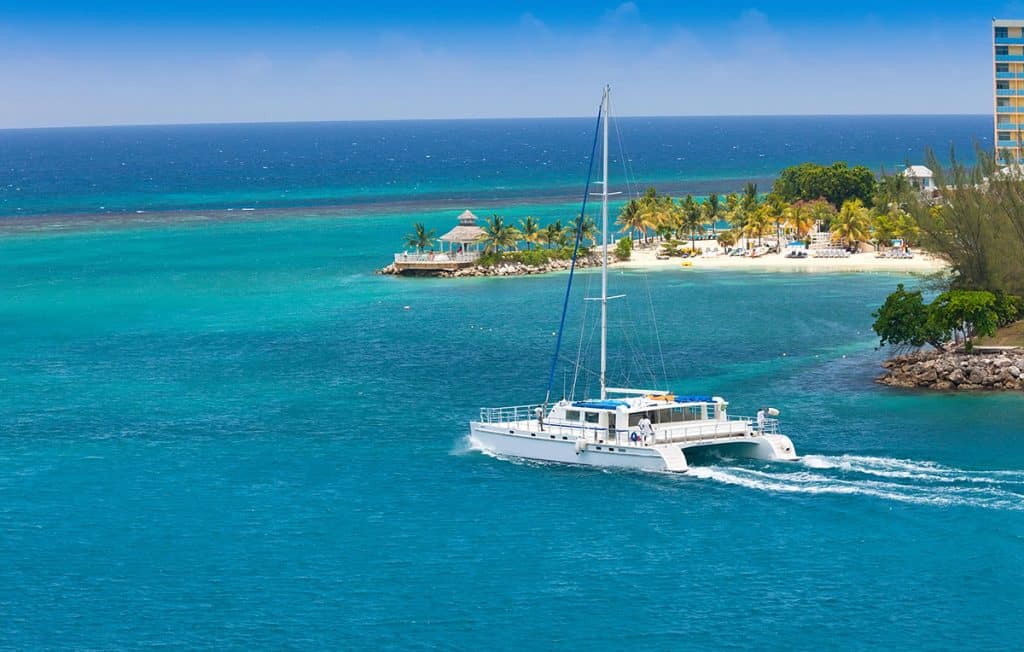
Multi-hull boats are more expensive to buy, and if you’re paying for docking, they’ll also often be more expensive because they’re wider.
But they’re also much more comfortable than mono-hull as they have more living space and feel more like a house. Which, to many, make them more suited for long-term living.
Other Boat Options
Although they don’t necessarily fit the “free-living” theme, there are other options for liveaboard boats. Keep in mind that they all require fuel since they have motors, which will add to maintenance, repair, and fuel costs.
- Houseboats – not suitable for anything outside of coastal cruising, but plenty of living space. Usually made to be tethered to a dock permanently. Read more about houseboats.
- Trawlers – plenty of living space, good for long-distance cruising, sturdy hulls make them suitable for ocean travel.
Taxes
Part of the appeal of living on a boat is that it allows you to escape the clutches of a government that wants to take away your money. Living free on a boat means you might not have to pay taxes
But how do you pull that off?
If you’re a U.S. citizen (or Eritrean), I’ve got bad news: You’ll be taxed no matter where you go, as long as you retain your citizenship. But with that in mind, you do have two options for avoiding federal taxes if you’re a U.S. citizen living on a boat:
- Get your taxable income to $0: Of course, you can always get your taxable income to $0, which may not be so hard if you’re just sailing on a boat all year and may or may not be making any money while doing it. But that may not be a sustainable long-term strategy.
- Change your citizenship to a country that doesn’t charge an income tax. But be aware that renouncing your U.S. citizenship is a serious decision that should not be taken lightly.
If you’re looking for a country that doesn’t charge income tax, here’s a quick list. Bear in mind that a lot of these countries have requirements to qualify for citizenship or tax-free living. Of course, it’s always best to consult with a tax professional or accountant if you’re looking for options to avoid paying income taxes.
- Bahrain
- The United Arab Emirates
- The Bahamas
- Somalia
- Pitcairn
- Oman
- Norfolk Island
There are other places, of course, and some countries, like the U.K., for example, won’t charge income tax if you aren’t there for a certain period (in the U.K., it’s 15 days out of the calendar year or fewer). You might need to consider changing your citizenship if you want to avoid paying income taxes while you’re cruising the world in your boat.
You may also be aware that while all U.S. citizens are required to file a tax return, residing outside of the United States for at least 330 days a year, exempts you $101,300 of income taxes. Sadly, that doesn’t apply to those living on a boat.
Again, consult with a tax professional to get a better idea of how you can conceivably pay no income tax while remaining a resident of the U.S.
Insurance
There’s no way around this one; if you want to live for free on your boat, you’ll have to forego an insurance plan and self-insure your boat. Essentially, this means you have enough money saved up to be able to cover the cost of repairs or replacements if your boat ever suffers a mishap.
Another thing to keep in mind is that, in the event of a collision with another boat, you’ll need to have enough money to cover any medical bills or repairs for another boat if you get in an accident.
Nautical insurance in international waters is a complex matter, to say the least, but here’s a good article describing how it works in a somewhat straightforward manner.
And then there’s the whole health insurance-thing. I’ll just save myself the headache and refer you to this informative video:
Resources and Utilities
The next item on the list you’ll want to check out is how you intend to cover the various resources and utilities you need to survive. The main focuses of this section are:
- Water
- Food
- Electricity
- Internet
For all of these except the internet (more on that later), you can conceivably have some high upfront costs to get to a point where you won’t be paying for it monthly and, therefore, living on your boat for free.
With a good initial setup, most of these will be highly sustainable solutions. Each will be discussed in greater detail below.
Water
The first thing that you need to figure out is how you’ll manage water on your boat. At sea, the old saying “water, water, everywhere, but not a drop to drink,” is a particularly astute observation.
To survive, you’ll need to shell out some cash upfront for a water maker. This is simply a device that desalinates (takes the salt out of) ocean water to make it potable.
Most of these devices cost several thousand dollars, but the high upfront cost will be worth it when you can continuously make your water. Watermakers work through reverse osmosis, filtering the salt and particulates out of the water. It can last for between 5-10 years before you’ll need to think about replacing it.
Making your water on board gives you options on anchoring; since you don’t need a port or a berth to get fresh water, you can anchor whenever, which will help keep you from having to spend money. It’s also necessary if you want to garden on board.
Food
Your main source of free protein while you’re out at sea will be whatever you can catch with fishing gear. Springing upfront for some decent deep-sea fishing gear might set you back a little bit, but it’ll be worth it when your fishing pole isn’t constantly breaking, and you have enough supplies to last you several years.
In addition to fishing, there are some good resources online for how to garden on a sailboat. You’ll be limited to what vegetables and fruits you can grow since the salt water and -air can be hard on plants, but here’s a brief list of what you can grow on the ocean.
- Herbs
- Strawberries
- Peas
- Spinach
- Tomatoes
- Lettuce
- Onions
- Celery
You’ll want to make sure you stay healthy, so supplementing your diet with vitamins or other supplements might be something to consider. It may be very difficult to get access to complex carbohydrates while you’re out there, so you may need to consider that. It might require you to stock up supplies when you dock your boat.
Canning your produce is another skill you might want to learn, so you can have food year-round, no matter whether you can grow it or not. With a little skill, know-how, and willingness to learn, it’s possible to grow enough produce onboard your boat to feed you and whatever crew you might have with you.
Electricity
You’ll also probably want electricity while you’re on your boat. Hands-down, your best option for free electricity is a solar grid, which has the added bonus of being pretty rugged and able to withstand the beating the ocean might give it. As long as the parts are all intact and no wiring is exposed, your solar panels will give you reliable energy while at sea.
Your needs and the space you have available should dictate how much you’ll spend on your initial setup, but you should expect to spend about $1,000 or so on a small setup. You won’t be powering a bunch of electronics, but this should be enough to run a small fridge, your watermaker, your boat lights, and a few other choice electronics.
Internet
There are some options for internet while at sea: satellite access when you’re away from land, and something called BGAN when you’re about 40 miles or less from shore.
However, you’ll be paying for access, and a satellite connection is very expensive. So if you’re truly committed to living for free, you’ll probably be doing so without internet access.
Another consideration, especially if you’ll be foregoing internet access is knowing how to repair your boat. The internet is a treasure-trove of information, and it lets you do research on the fly.
You could also just access public wi-fi whenever you land at a port. You’ll definitely be roughing it more if you don’t have access to the internet, but maybe that’s why you’re at sea, to begin with.
Where to Dock Your Boat
One last thing to consider when trying to live on a boat for free is where to dock your boat. If you use the vast majority of marinas, you’ll end up having to pay for a slip. However, there are ways to avoid having to pay for a berth.
The most obvious answer to this problem is to just anchor wherever, but if you ever get the desire to set foot on dry land, you might have to dock your boat. On the other hand, it’s possible to drop anchor and take a smaller dinghy to shore, but many countries have laws that regulate or outright ban this practice.
If you’re only going ashore for a short time, anchoring your boat by the coastline is probably your best bet for free berthing. Just make sure to follow any posted signs or laws for wherever you’re sailing so you can avoid legal trouble.
Realistically, You’ll Still Have to Pay for Some Things.
While you can live for free on a boat, it’ll be a very spartan existence. You’ll be living off whatever you can catch or grow, and you’ll have a lot of space devoted to storing backup parts, so you’re not paying for repairs. Eventually, you’ll probably have to spend some money, though, unless you plan on landing on deserted islands and making new masts out of trees.
- Repairs and repair parts
- Boat maintenance
- Food re-supplies
- Replacement water maker
- Solar panel maintenance and repair
- Periodic internet access
- Insurance (if you decide not to self-insure)
How much you end up spending while you’re living on your boat really depends on the lifestyle you want to live. You’ll be traveling around the world, and theoretically, you could have very few expenses, and your cost of living could be very close to $0.
Probably the biggest thing you’ll have to worry about, though, are the costs of maintenance and repairs. It’s going to be almost impossible to keep from having to spend money on repairs.
At the end of the day, you can significantly lower your living expenses by living on a boat and sailing internationally, but the odds that you’ll absolutely never need to buy anything again in your life are very small. Keep in mind that whenever you land at port anywhere, you’ll probably be spending some money there too.
Final Thoughts
Hopefully, this brief guide gave you some things to consider and think about if you’re seriously considering living on a boat and trying to do it for free. You’ll have some significant upfront costs when buying your boat and the gear to make you as self-sustaining as possible, but it can certainly be done.
Unfortunately, you’re still going to have to pay money at some point for repairs. Even the best-made boats will eventually have issues, and seawater can be very unforgiving. While you might be able to go some months without spending any money on your boat, some costs will always pop up. It’ll definitely be fun, though. Get ready for a true adventure!

